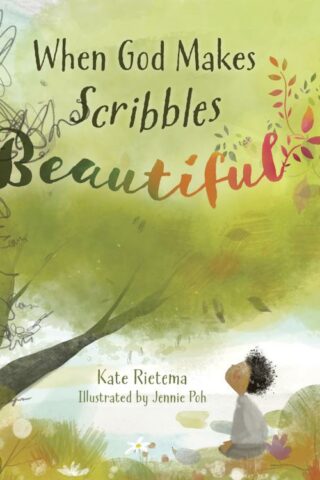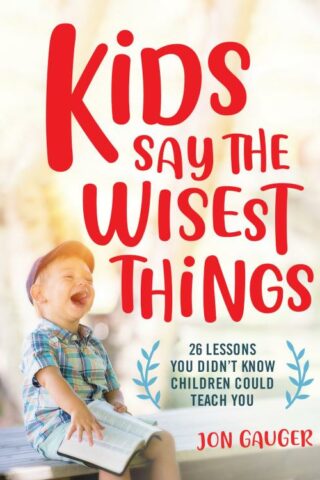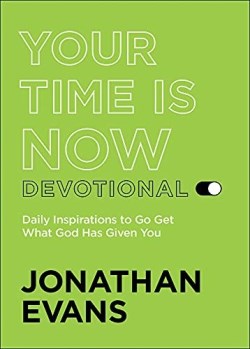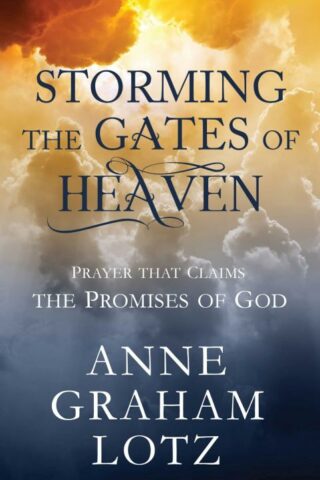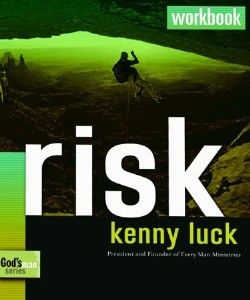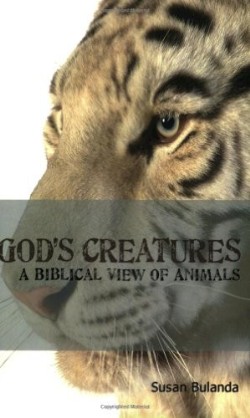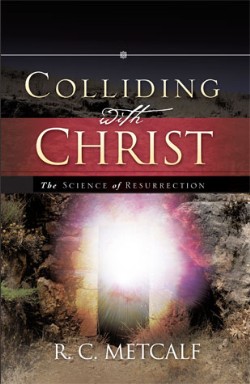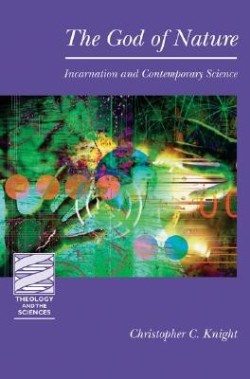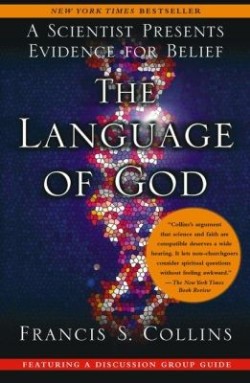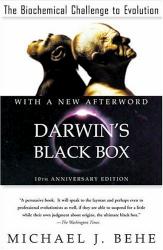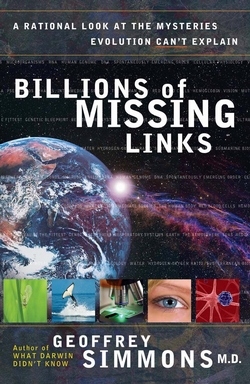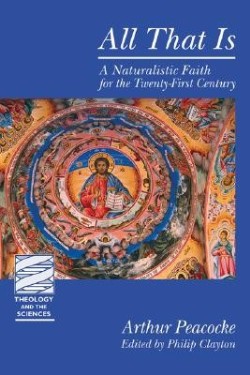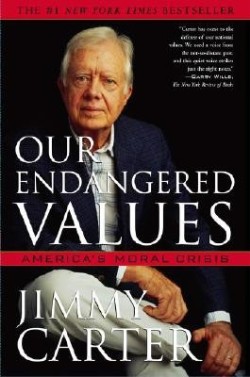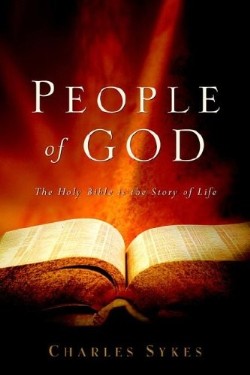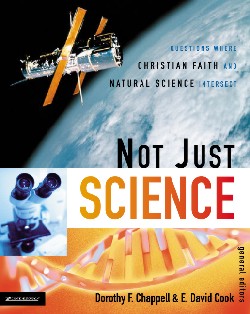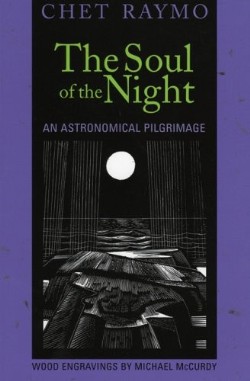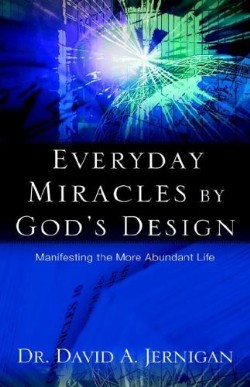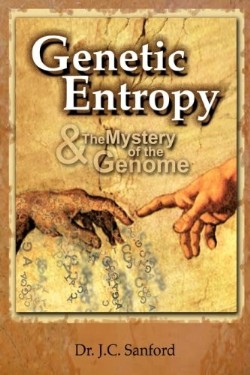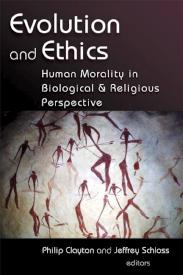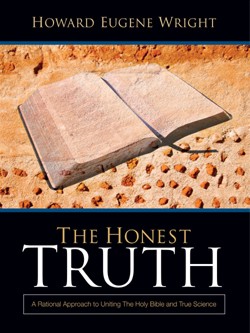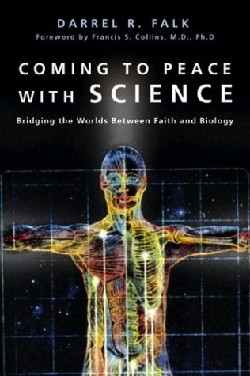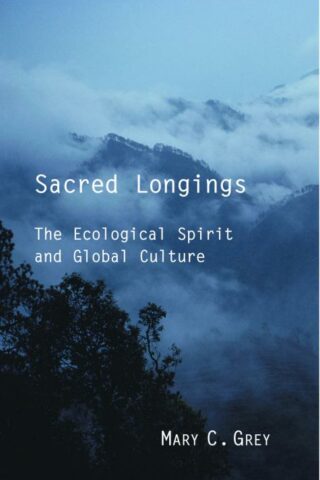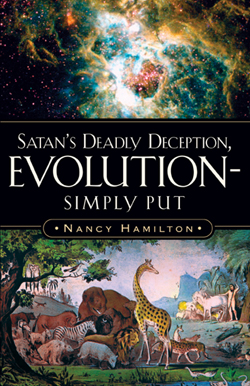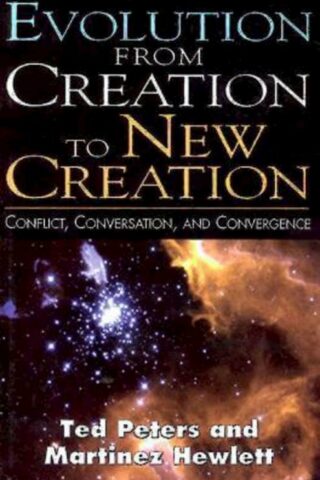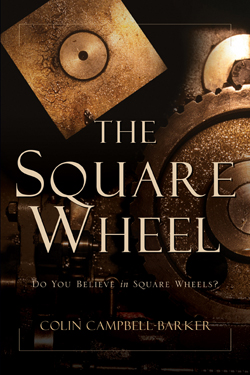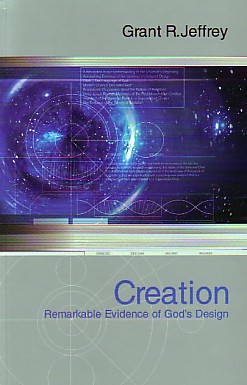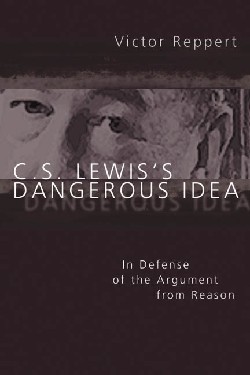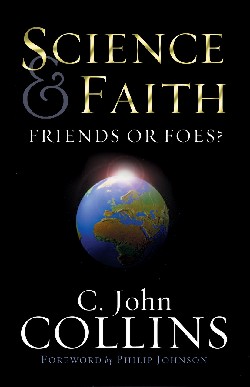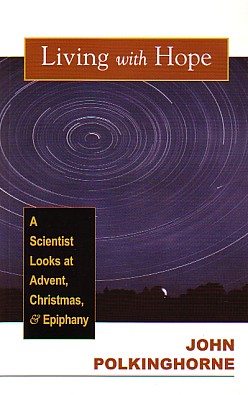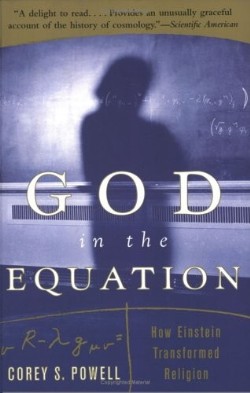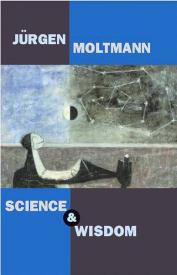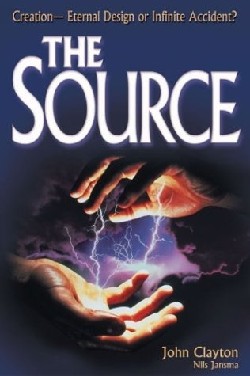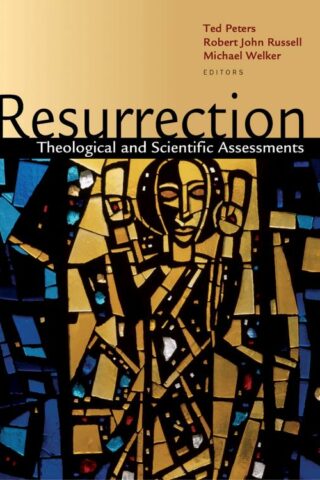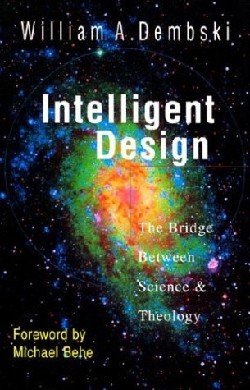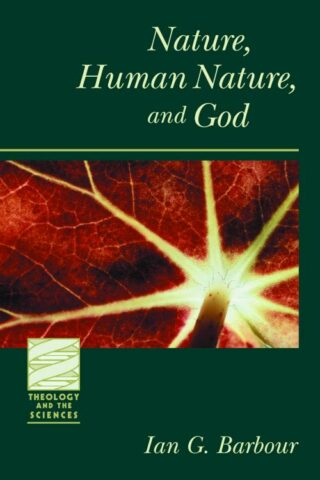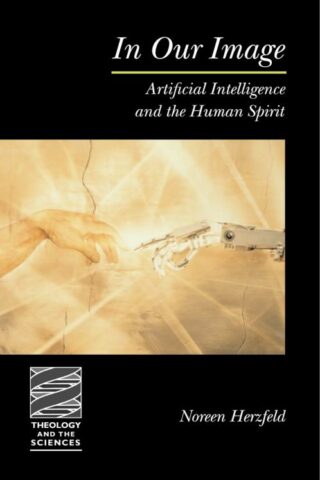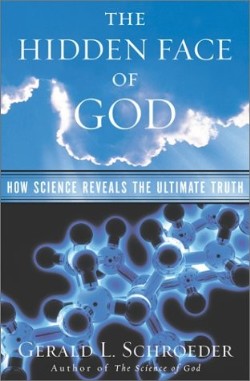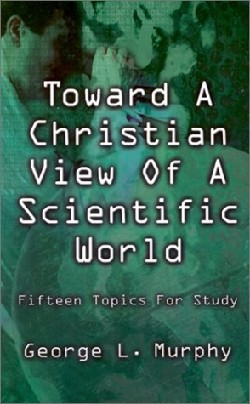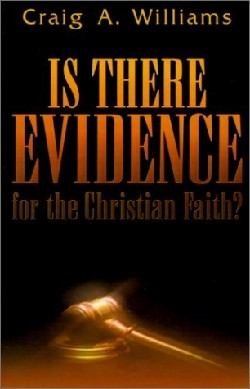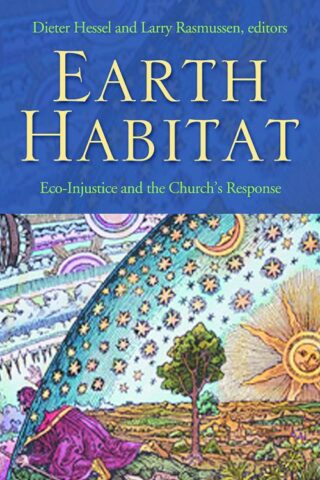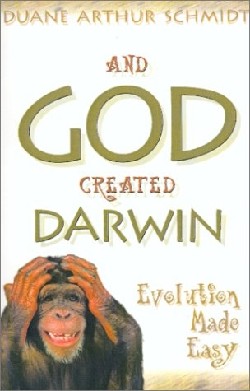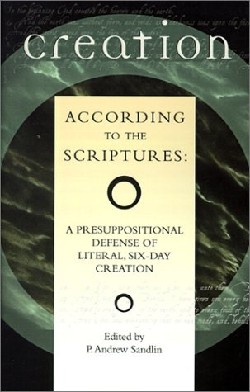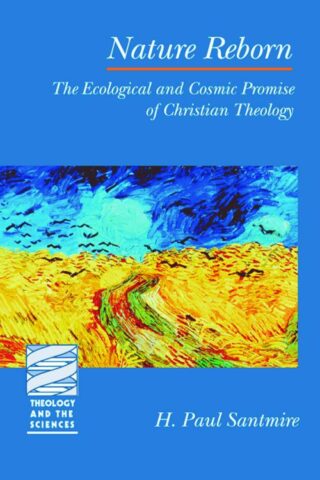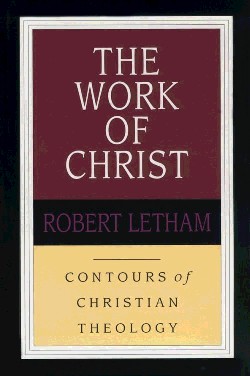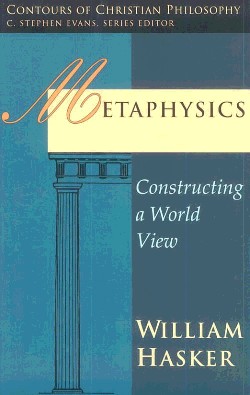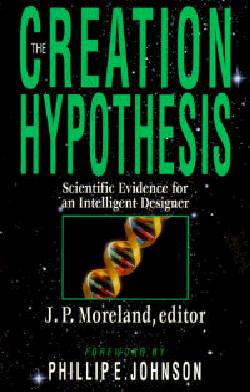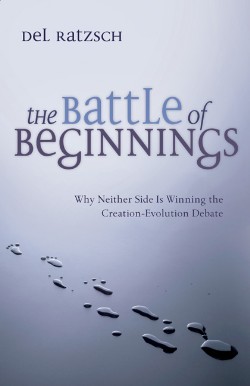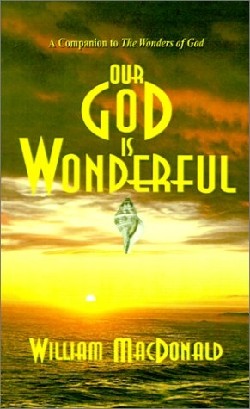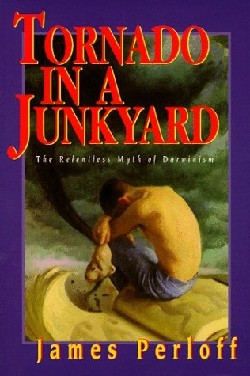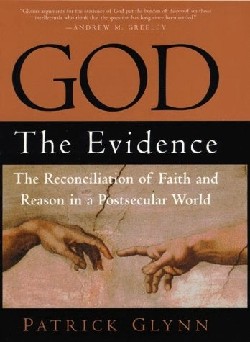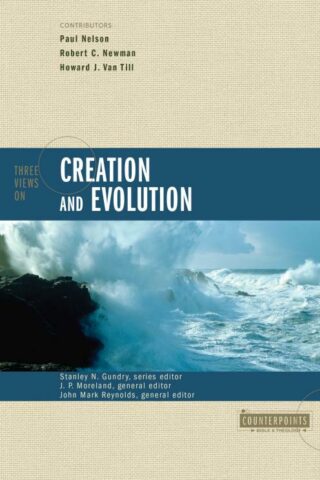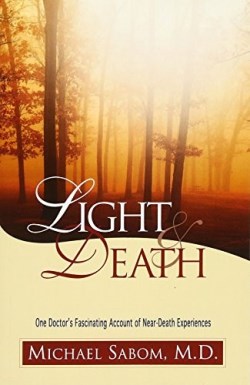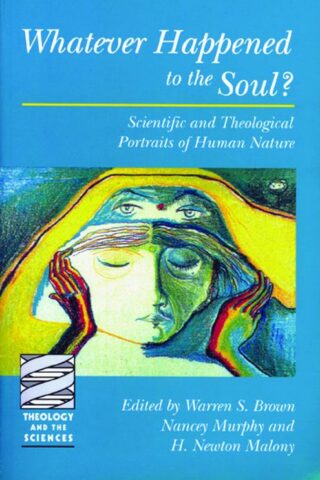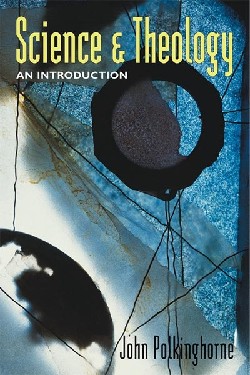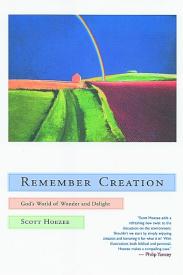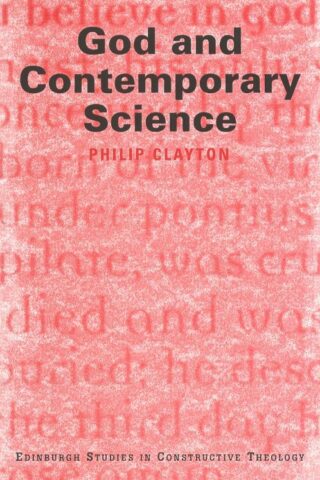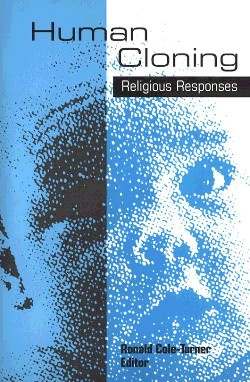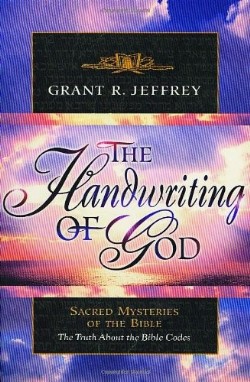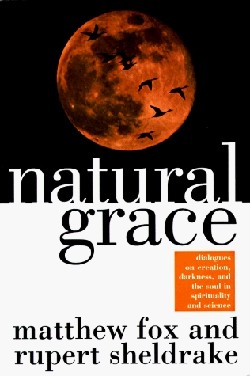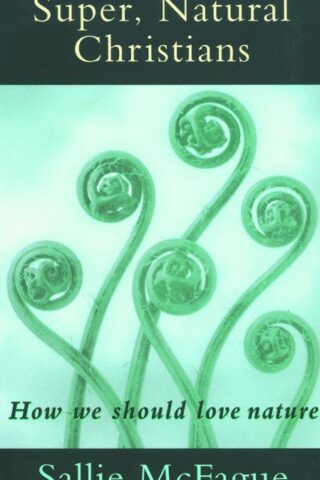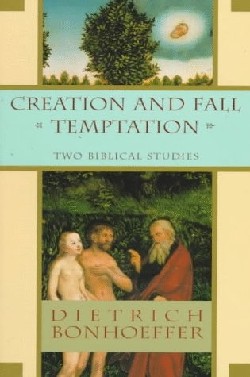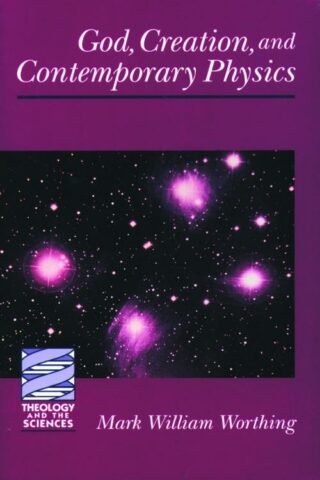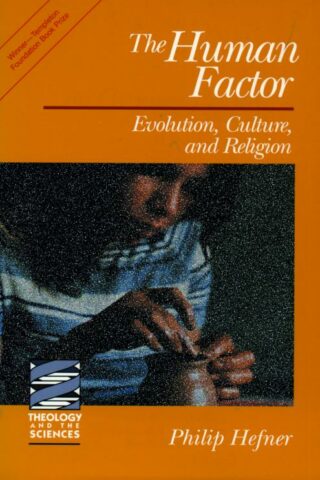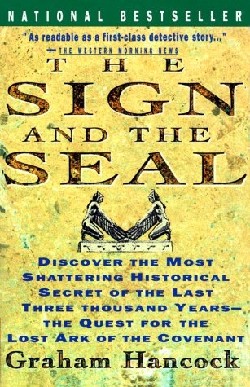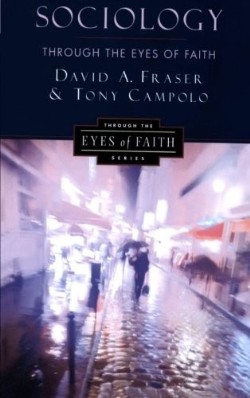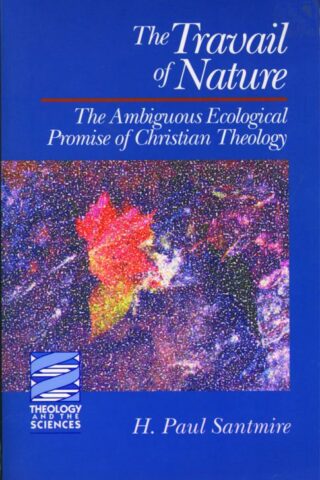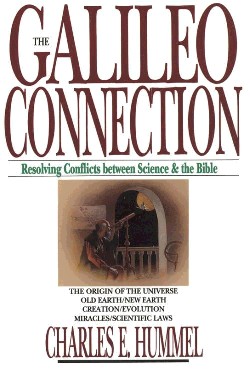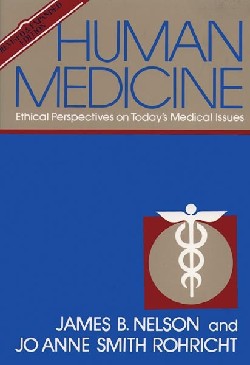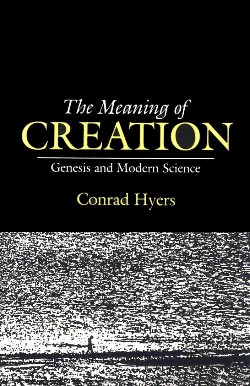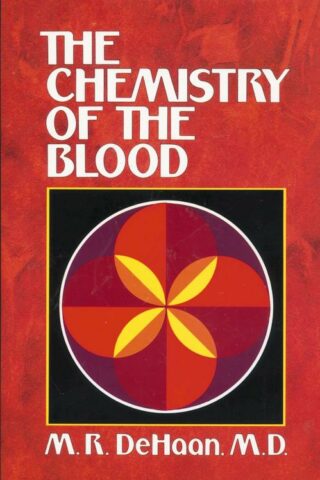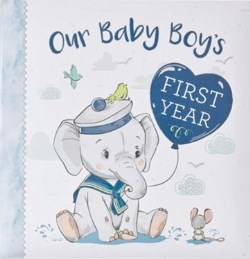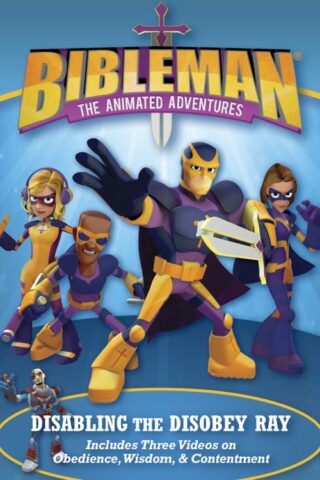Science and Faith
Showing 101–175 of 175 resultsSorted by latest
-
Whats So Special About Me
$15.61“What’s so special about me?” reveals the breathtaking wonders of the human body to young and old in a fresh and readable way. Focusing on the complexities inherent within each individual, Dr. Bradley Kuhn uses this as a signpost to lead the reader to the inescapable conclusion of an ultimate designer. In so doing, this book will give you an uplifting encounter with the amazing miracle of life. Educational and easily understood, “What’s so special about me?” addresses the key issues that many young people deal with today – self esteem, significance and purpose.
Add to cartin stock within 3-5 days of online purchase
-
Gods Creatures : A Biblical View Of Animals
$11.4915 Chapters
Additional Info
Will animals be in heaven? Is it right to kill and eat animals? How does God use animals to accomplish his purposes? Are animals somehow aware of their Creator? Here are answers to these questions and more. Susan Bulanda draws on years of experience as an animal behaviorist and a Bible student to present a discussion of God’s purposes and dealings with animals. For committed Christians who love animals, or animal lovers who are curious to know how the Christian scriptures address animal issues.Add to cartin stock within 3-5 days of online purchase
-
Colliding With Christ
$34.36Did Jesus Christ really rise from the dead? In The God Delusion (p. 59), Richard Dawkins claims that, “The methods we should use to settle the matter, in the unlikely event that relevant evidence ever became available, would be purely and entirely scientific methods.” R. C. Metcalf agrees that science offers one of the strongest lines of relevant evidence, but contends that a comprehensive case should draw from many sources of human knowledge. In Colliding with Christ, Dr. Metcalf adds to the textual and historical evidence in favor of the physical resurrection of Jesus by presenting a thought-provoking new model that explains the events of the first Easter scientifically. If you’ve ever struggled with thoughts that science has refuted the Christian faith… think again! The evidence is still mounting… The jury is deadlocked… …but Jesus Christ is alive and well!
Add to cartin stock within 3-5 days of online purchase
-
Colliding With Christ
$21.86Did Jesus Christ really rise from the dead? In The God Delusion (p. 59), Richard Dawkins claims that, “The methods we should use to settle the matter, in the unlikely event that relevant evidence ever became available, would be purely and entirely scientific methods.” R. C. Metcalf agrees that science offers one of the strongest lines of relevant evidence, but contends that a comprehensive case should draw from many sources of human knowledge. In Colliding with Christ, Dr. Metcalf adds to the textual and historical evidence in favor of the physical resurrection of Jesus by presenting a thought-provoking new model that explains the events of the first Easter scientifically. If you’ve ever struggled with thoughts that science has refuted the Christian faith… think again! The evidence is still mounting… The jury is deadlocked… …but Jesus Christ is alive and well!
Add to cartin stock within 3-5 days of online purchase
-
God Of Nature
$40.00Although Christians have professed the God of Israel, they have often assumed a naturalistic theism that harks back to the Greeks. Doing so, says Christopher Knight, has masked the explanatory potential of a basic Christian affirmation: the incarnation.
Knight here forges a third way of thinking about divine engagement with the world, beyond deism and theism. He sees God’s intimate involvement with creation and history as implied in the reality of the incarnation and essentially confirming divine purpose in a kind of sacramental character to all events as they unfold in the world. On this basis, he brings fresh insight to the questions of providence, miracles, personal prayer, the virgin birth, and the ascension of Jesus.
Knight’s work promises not to displace science, nor to plead for special exceptions on special occasions, but to see God as always active in the very warp and woof of the universe and its laws.
Add to cartin stock within 3-5 days of online purchase
-
Language Of God
$19.99The head of the Human Genome Project and a former atheist, Collins makes a strong case for BioLogos—God-directed evolution—in comparison to atheistic evolution, Intelligent Design, and creationism. He offers an awe-inspiring tour of the complexities of biology, genetics, and DNA—and reveals a richly satisfying, harmonious melding of scientific and spiritual worldviews.
Add to cartin stock within 3-5 days of online purchase
-
Darwins Black Box
$20.00The groundbreaking, “seminal work” (“Time) on intelligent design that dares to ask, was Darwin wrong?
In 1996, “Darwin’s Black Box helped to launch the intelligent design movement: the argument that nature exhibits evidence of design, beyond Darwinian randomness. It sparked a national debate on evolution, which continues to intensify across the country. From one end of the spectrum to the other, “Darwin’s Black Box has established itself as the key intelligent design text — the one argument that must be addressed in order to determine whether Darwinian evolution is sufficient to explain life as we know it.
In a major new Afterword for this edition, Behe explains that the complexity discovered by microbiologists has dramatically increased since the book was first published. That complexity is a continuing challenge to Darwinism, and evolutionists have had no success at explaining it. “Darwin’s Black Box is more important today than ever.
Add to cartin stock within 3-5 days of online purchase
-
Billions Of Missing Links
$22.48Harvest House Print On Demand Title
Dr. Geoffrey Simmons focuses on the millions of structures and systems on the Earth that came about all at once, entire…with no preceding links, no subsequent links, no “sideways” links.
To illustrate, he surveys examples like…
*the hummingbird and its circulatory system
*insects and insect-eating plants
*the role of the thousands of species of viruses
*chemical signals and the sensory apparatus that detects them
*the self-regulating capacity of the Earth’s ocean/air/soil systemIt’s clear: Nature containsonly leaps, not links. Only the intelligence and purpose of an all-powerful Designer can explain the intricate creatures, connections, and “coincidences” everywhere.
Excellent for students and parents, especially homeschoolers, and for educators who want to present the “full picture.”
Add to cartin stock within 3-5 days of online purchase
-
All That Is
$38.33During the last year of his life, Arthur Peacocke raced against time to formulate a final comprehensive overview of his “emergentist – naturalist – panentheist” perspective. A group of ten specialists in science-and-religion then composed commentaries and critiques of Peacocke’s new “Essay in Interpretation.” In the last weeks and months of his life, Peacocke drew together a final set of reflections on and replies to their chapters. Peacocke’s “Nunc Dimittis,” his final theological reflections in the days before his death, completes this volume.
Peacocke’s brief sketch of how God and nature and humanity interrelate will prove a nascent classic in the field and a touchstone for further reflection. Led by editor Philip Clayton, respondents include: Nancey Murphy, Ann Pederson, Philip Hefner, John Polkinghorne, Karl E. Peters, Donald M. Braxton, Robert John Russell, Keith Ward, Christopher C. Knight, and Willem B. Drees.
Add to cartin stock within 3-5 days of online purchase
-
Our Endangered Values
$16.00President Jimmy Carter offers a passionate defense of separation of church and state. He warns that fundamentalists are deliberately blurring the lines between politics and religion.
As a believing Christian, Carter takes on issues that are under fierce debate — women’s rights, terrorism, homosexuality, civil liberties, abortion, the death penalty, science and religion, environmental degradation, nuclear arsenals, preemptive war, and America’s global image.
Add to cartin stock within 3-5 days of online purchase
-
Are We Alone In The Universe
$18.73Our society is infatuated with the prospect that life exists on other planets. Three out of four Americans believe in the existence of extraterrestrial life. Scientific experts say it is just a matter of time before the existence of alien life is a proven fact. Biblical evidence reveals that we are alone in the universe! In the search for extraterrestrial life, many have discarded the Bible as a source of insight on this question. Are We Alone in The Universe? A Biblical Perspective compares scientific information about the universe and the search for extraterrestrial life with what the Bible says concerning the possible existence of intelligent life on other planets. This book will reveal God’s purpose for the immensity of the universe, the worth God places on our seemly insignificant lives, and bring about a greater awareness that there is no bigness or smallness in the eyes of God.
Add to cartin stock within 3-5 days of online purchase
-
Not Just Science
$35.70This book questions where Christian faith and natural science intersect. What should liberal arts students studying at Christian colleges and universities be asking themselves as they natural science? This book enables students to think critically about how the Christian worldview influences our perceptions in the area of natural science. It acquaints students with foundational questions important to the practice of natural science, as well as God’s mandate to care for His creations.
Add to cartin stock within 3-5 days of online purchase
-
Soul Of The Night
$22.78Probing the depths of science and faith, scientist Chet Raymo investigates the mysteries of human spirituality and meaning contained in astronomy. Ranging through the stars and the myths humans have told about them for millennia, Raymo delves into “a pilgrimage in quest of the soul of the night.”
Chet Raymo’s elegant essays link the mysterious phenomena of the night sky with the human mind and spirit, as he ranges through the realms of mythology, literature, religion, history, and anthropology. Originally published two decades ago, The Soul of the Night is a classic work that is a must for those interested in the relationship between science and faith
Add to cartin stock within 3-5 days of online purchase
-
Everyday Miracles By Gods Design
$18.73Don’t you wish your body and life came with an Operator’s Manual? In his groundbreaking book, Everyday Miracles by God’s Design, Dr. David Jernigan presents an amazing interweaving of the latest science and the universal truths from God’s Word. This book is a bold step towards the Operator’s Manual you always wanted! Dr. Jernigan’s work transcends and bridges the gaps between science and faith so that everyone can discover the power of their Maker through a truly miraculous life. Learn how to attain and access the ultimate power in the universe. This book will take you on a journey with a worthy destination, one that will last your entire life and beyond.
Add to cartin stock within 3-5 days of online purchase
-
Genetic Entropy And The Mystery Of The Genome
$31.25Dr. John Sanford, a retired Cornell Professor, shows in Genetic Entropy and the Mystery of the Genome that the “Primary Axiom” is false. The Primary Axiom is the foundational evolutionary premise – that life is merely the result of mutations and natural selection. In addition to showing compelling theoretical evidence that whole genomes can not evolve upward, Dr. Sanford presents strong evidence that higher genomes must in fact degenerate over time. This book strongly refutes the Darwinian concept that man is just the result of a random and pointless natural process
Add to cartin stock within 3-5 days of online purchase
-
Evolution And Ethics
$38.99Christians frequently resist evolutionary theory, believing it to be incompatible with the core values of their tradition. But what exactly are the tensions between evolution and religious faith in the area of human morality? Evolution and Ethics examines the burning questions of human morality from the standpoint of Christian thought and contemporary biology, asking where the two perspectives diverge and where they may complement one another.
Representing a significant dialogue between world-class scientists, philosophers, and theologians, this volume explores the central features of biological and religious accounts of human morality, introducing the leading theories and locating the key points of contention. Central to these discussions are the questions of whether human actions are ever genuinely selfless, whether there is something in the moral life that transcends biological function, and whether one can sensibly speak of an overall purpose to the course of evolution.
Certain to engage scholars, students, and general readers alike, Evolution and Ethics offers a balanced, levelheaded, constructive approach to an often divisive debate.
Add to cartin stock within 3-5 days of online purchase
-
Honest Truth : A Rational Approach To Uniting The Holy Bible And True Scien
$24.98When I realized the confusion in the church and the secular world concerning the common ground between the Bible and the sciences, I decided to “light a light rather than curse the darkness.” It was necessary to have a format that would do justice to the Bible and the sciences. After a number of years of research, I decided to approach this subject as a thorough coverage of the Bible and the sciences. Thus, this book starts by developing a sound mind for greater service for God and others. It is followed with the honest truth found in the Bible from Genesis to Revelation. Then there is a comparison of Good Science with the illusions of modern “science,” falsely so called. The fourth part of this book is the reenactment of the marriage of Holy Bible and True Science to bring glory and honor to God. This is followed by a number of appendixes and a bibliography to reinforce the argument found in it.
Add to cartin stock within 3-5 days of online purchase
-
Coming To Peace With Science
$25.99Foreword By Francis S. Collins
Preface
Acknowledgments
1. Science And Religion: Trying To Live In Two Worlds At Once
2. The Creation And Fall: Exploring The Meaning Of Scripture
3. Putting Creation Into A Time Frame
4. The Fossil Record
5. Beyond The Fossil Record: Looking At The Geographical Distribution Of Life’s Diversity
6. Tracing Lineage By Tracking Genes
7. Coming To Peace With Biology
IndexAdditional Info
Is a thoroughly Christian and biblically informed doctrine of creation compatible with widely held conclusions of modern science, especially biology? For Darrel R. Falk, this is not just an abstract question but one with which he has personally wrestled. A professor of biology, Falk brings together his biblically based understanding of creation and the most current research in biology. The result of his efforts to acknowledge the validity of science and the authority of Scripture is a new paradigm for relating the claims of science to the truths of Christianity. Written with the undergraduate student in mind, this book nonetheless will help anyone who is looking for a place to stand in the creation-evolution debate, fearful that they’ll have to choose between intellectual integrity and the faith of the church. Calling for charitable discussions within the church, Falk shows how an original and ongoing interaction of God with creation is fully reconcilable with the kinds of development identified by current biological science.Add to cartin stock within 3-5 days of online purchase
-
Sacred Longings : The Ecological Spirit And Global Culture
$33.33What do we really want? Internationally noted theologian Mary Grey believes we have gotten out of touch with our deepest desires. Trapped by the seductions of the marketplace, addicted to more and more, our culture has acquiesced in global capitalism’s most problematic characteristics, including widespread poverty and global maldistribution of resources. Grey’s hopeful book argues that there is a deeper language of desire that plumbs to what humanity really wants. Emergent in story and myth and symbol, these sacred longings can be seen in the simple yet profound elements–within and beyond Christianity–or water, light, and sacred space. Getting back in touch with our sacred longings entails a spiritual quest–a kind of ecomystical renewal–that can transform our desire, enliven our communities, simplify our lifestyles, and ultimately rekindle our global prospects.
Add to cartin stock within 3-5 days of online purchase
-
Satans Deadly Deception Evolution Simply Put
$18.73Creation is God’s Absolute Truth! Choruses of hallelujahs rang throughout the vastness as Almighty God said, “Let there be,” and THERE WAS! Through first-person narration, you will witness Creation through the eyes of an angel. You will hear about the wonderful Creation of man at the hands of God, listen to Eve reminisce about life in the Garden of Eden, and shudder at the revelation of sin and shame due to man’s disobedience to God. Evolution is Satan’s Deadly Deception! Gain an insight into how and why Satan’s manipulation of evolution is influencing man and man’s way of thinking concerning God and Christianity.We’ll look at evolution and see how the Bible refutes every concept of evolution’s insidious and destructive theories. By searching the Scriptures, we will plug the gap in the Gap Theory, mute the bang in the Big Bang Theory, and dispel Darwin’s monkey to man theory!
Add to cartin stock within 3-5 days of online purchase
-
In Whom We Live And Move And Have Our Being
$39.99SKU (ISBN): 9780802809780ISBN10: 0802809782Editor: Philip Clayton | Editor: Arthur PeacockeBinding: Trade PaperPublished: February 2004Publisher: Lightning Source – Print On Demand Print On Demand Product
Add to cartin stock within 3-5 days of online purchase
-
What Darwin Didnt Know
$23.73What Darwin Didn’t Know puts Darwin’s ‘findings’ in perspective of what we now know thanks to microbiology. Doctor Simmons brings a medical doctor’s view of the human body to give proofs against natuaral selection. End of chapter ‘Bottom Line Points’ give a concise breakdown of the major issues covered in each chapter. Thoroughly engaging and written for those with no specific knowledge of biology, this book gives an eternal perspective to the systems and functions each of us have and use every second of every day.
Add to cartin stock within 3-5 days of online purchase
-
Evolution From Creation To New Creation
$25.99Today’s seminary students often come to their graduate work with little or no knowledge of science or theology; yet they most certainly have opinions about evolution, as will their future congregants. How can such students plunge into the whirlpool of controversy that surrounds the heated debates between science and theology? How can they negotiate the often ideological waters of Darwinism, NeoDarwinism, Social Darwinism, Sociobiology, Youth Earth Creationism, Intelligent Design, and Theistic Evolution? Here the authors answer these questions, offer a bridge for understanding the inner coherence and passion of each stream of thought, and lead to a constructive proposal: evolution in natural history is part of God’s method for carrying the creation from its origin to its consummation in the eschatological new creation.
Add to cartin stock within 3-5 days of online purchase
-
Square Wheel : Do You Believe In Square Wheels
$18.73The Square Wheel deals with many beliefs and teachings in society that are simply untrue. It firstly shows that evolution is false and brings to light the sheer obviousness of creation. If you don’t believe in God, read this book and challenge yourself. How do you know it’s not true unless you read it? Whether you believe in God or not, this book is a vital strengthening tool that underlines the plainness of God in creation. It also helps unclutter and clear the mind about many issues. Living in modern society, we are exposed to so much information that the really important truth gets choked and can become totally mixed up and ignored. This book delves deeply into the truth in the world and its history and clearly shows God and Christ are indeed real.
Add to cartin stock within 3-5 days of online purchase
-
Creation : Remarkable Evidence Of Gods Design
$19.00Content Includes:
*Deep Space Reveals Mysteries Of The First Moments Of Creation
*Wonders Of The Universe Point To A Supernatural Creator
*A Revolution In Our Understanding Of The Universe’s Beginning
*Astonishing Evidence Of The Universe’s Intelligent Design
*Remarkable Discoveries About The Nature Of The Atom
*The Collapse Of The Theory Of Evolution
*DNA- The Language Of God
*Modern Science Discovers GodAdditional Info
This book explores the powerful new evidence discovered in the last few decades by scientific research in astronomy, the nature of the atom and DNA. These discoveries have caused a revolution in the world view of thousands of scientists as they were confronted with compelling new evidence that our universe must have been created by a Supernatural Mind. Grant Jeffrey’s latest book, Creation, will challenge readers with fascinating new information that confirms the Bible’s claim that “In the beginning God created the heavens and the earth”.Add to cartin stock within 3-5 days of online purchase
-
Science And Faith
$32.00Many believers worry that science undermines the Christian faith. Instead of fearing scientific discovery, Jack Collins believes that Christians should delight in the natural world and study it. God’s truth will stand against and challenge and will enrich the very scientific studies that we fear. Collins first defines faith and science, shows their relation, and explains what claims each has concerning truth. Then he applies the biblical teaching on creation to the topics of “conflict” between faith and science, including the age of the earth, evolution, and miracles. He considers what it means to live in a created world. This book is for anyone looking for a Christian engagement with science without technical jargon.
Add to cartin stock within 3-5 days of online purchase
-
Living With Hope
$23.00Advent is a time for deepening encounter with reality, including the ultimate reality made manifest in human form at Christmas and Epiphany. This thought-provoking book illuminates biblical thinking with striking new insights from the author’s twin disciplines of theology and science at the cutting edge of physics.
Though daily readings for Advent, Christmas, and Epiphany Polkinghorne explores such themes as the end of the world, individual destiny, unseen realities, heaven, hell, and suffering; this is not a book that hides behind platitudes or easy solutions, yet the author offers profound insight into his deep reflections on the nature, meaning, and purpose of creation.
Suitable for individual study, as a guide to prayer during Advent and beyond, or as the basis of small group discussion, Living With Hope offers a unique and inspiring pathway into the coming of Christ in history, in our lives, and in what we shall be.
Add to cartin stock within 3-5 days of online purchase
-
God In The Equation
$18.99He wanted to know where our world comes from and where it was going.
He wanted to understand how the remote stillness of the heavens relates to the erratic, ever-changing events here on earth.
Above all, he wanted to know if the answers to these questions would bring him closer to a higher authority.
So Einstein put God in the Equation
“Everyone who is seriously involved in the pursuit of science,” Albert Einstein once said, “becomes convinced that a spirit is manifest in the laws of the universe — a spirit vastly superior to that of man.” This mysterious component, which Einstein called a “cosmological constant,” would eventually work its way into his world-shattering theory of relativity. In this way, explains acclaimed science writer Corey S. Powell, Einstein was creating a formula for a new kind of “sci/religion,” one in which God was a factor, denoted by the Greek letter Lambda, and one that would pave the way for an entirely new gnostic era in the history of human spirituality.
Add to cartin stock within 3-5 days of online purchase
-
Science And The Study Of God
$27.99Religion and science today are often seen as enemies battling for human hearts and minds. In this new book Alan Padgett takes a postmodern turn, arguing that they can and should work together collegially, developing a worldview that is at once spiritually meaningful and scientifically sound.
Pursuing a perspective that he calls the “mutuality model,” Padgett highlights the contributions that both religion and science make to a full understanding of the world and our place in it. He argues convincingly that the natural sciences and theology, even though they have their own domain as disciplines, can rationally influence each other without giving up their distinctive methods.
The book explores the nature of informal reason and worldviews, the character of theology as a spiritual and academic discipline, and the question of what counts as natural science. Along the way, Padgett discusses such topics as thermodynamics, time, resurrection, and the historical Jesus to illustrate his powerful mutuality model.
Add to cartin stock within 3-5 days of online purchase
-
Science And Wisdom
$38.33Weighing both the pluses and minuses of modern science, Moltmann specifically assesses contemporary cosmology. He ponders the creation as an open system, the self-emptying of God in the history of the universe, problems of time and eternity, ideas of God and space, as well as the last things.
Add to cartin stock within 3-5 days of online purchase
-
Source : Creation Eternal Design Or Infinite Accident
$19.95(When placing your order, please mention that this is a Lightining Source book.)
A number of years ago, John Clayton, a second-generation atheist and respected scientist and teacher, set out to disprove the Bible from a scientific point of view. Instead, his six-year study brought him to a profound faith in the God of the Bible.
Now, in this highly informative and easy to understand book, John Clayton and Nils Jansma – a geotechnical engineer and geologist – present convincing evidence that the Bible and the facts of science agree. As the public moves away from a belief in God as Creator of our heaven and earth, it becomes imperative that all believers be well informed on this vital subject. This book will become a resource you will use again and again.Add to cartin stock within 3-5 days of online purchase
-
Resurrection : Theological And Scientific Assessments
$38.99In this volume first-rate scientists and theologians from both sides of the Atlantic explore the Christian concept of bodily resurrection in light of the views of contemporary science.
Whether it be the Easter resurrection of Jesus or the promised new life of individual believers, the authors argue that resurrection must be conceived as “embodied” and that our bodies cannot exist apart from their worldly environment. Yet nothing in today’s scientific disciplines supports the possibility of either bodily resurrection or the new creation of the universe at large. Cosmology, for example, only forecasts an end to the universe. If persons and the cosmos are to rise up anew in the eschaton, such an event will have to be a willful act of God. Thus, while modern science can offer aid in constructing models for picturing what “resurrection of the body” could mean, the warrant for this belief must come from distinctly theological resources such as divine revelation. Christian faith ultimately gains its strength not from modern science but from God’s promises.
Bridging such disciplines as physics, biology, neuroscience, philosophy, biblical studies, and theology, Resurrection offers fascinating reading to anyone interested in this vital Christian belief or in the intersection of faith and scientific thought.
Add to cartin stock within 3-5 days of online purchase
-
Intelligent Design : The Bridge Between Science And Theology
$34.99“Mathematician-philosopher Dembski is author of the acclaimed Design Inference. The present book is a more accessible statement of the argument for nonspecialists. Of particular interest are Dembski’s responses to the objections raised to his arguments. An important book,”—First Things
Add to cartin stock within 3-5 days of online purchase
-
Nature Human Nature And God
$30.00In his latest work, the dean of religion and science tackles some of the thorniest issues posed by contemporary thought. Thoroughly conversant with current developments, Barbour offers astute analyses of the shape and import of evolutionary theory, indeterminacy, neuroscience, information theory, and artificial intelligence. He also addresses deeper philosophical issues and the idea of nature itself. Then with characteristic clarity and verve, Barbour advances to the interconnected religious questions at the core of contemporary debate: Are humans free? Does religion itself evolve? Are we immortal? Is God omnipotent? How does God act in nature? Barbour’s creative and constructive work offers hope that newer religious insights and imperatives occasioned by deep interaction with science can address the environmental and global challenges posed by science’s relentless advance.
Add to cartin stock within 3-5 days of online purchase
-
In Our Image
$40.00In Our Image is the first extensive theological engagement with the field of Artificial Intelligence (AI). Herzfeld probes this new field, which seeks to model human intelligence in computers, for its theological depth. She argues that “At the root of the fascination our current culture has with creating an image of ourselves in an intelligent computer lies a continuing problematic of defining … what it means to be truly human.” She shows how AI continues the classic Christian quest for defining the image of God in humans. Offering a smart, accessible history and typology of research in AI, Herzfeld shows how its rival schools parallel competing options in the theological anthropologies of Niebuhr, von Rad, and Barth. She probes our interest in AI and argues that a relational anthropology informs the best research and the many depictions of AI in science fiction and film. Herzfeld’s exciting work further develops this relational model, in which she finds a needed corrective to the individualistic and narcissistic tendencies of much recent spirituality and the seeds of a human/computer ethic.
Add to cartin stock within 3-5 days of online purchase
-
Toward A Christian View Of A Scientific World
$18.68Modern science and science-based technology have changed traditional understandings of the world in profound ways. A pastor who is also a trained scientist draws on his diverse background to help readers put today’s scientific knowledge in the context of Christian faith. Murphy sees the world described by today’s science as the creation of God revealed in Jesus Christ, and technology and modern medicine as ways to carry out God’s purpose for the world. This book is a useful tool for introducing readers to the crucial conversations and interactions now occurring between the fields of science, theology, technology, and ethics. It’s a clear and accessible text that’s appropriate for adult classes and lay groups of all levels.
Add to cartin stock within 3-5 days of online purchase
-
Earth Habitat : Eco Injustice And The Churchs Response
$35.00This single volume gathers theologians from around the world to address three pressing questions: How can Christianity and Christian churches rethink themselves and their roles in light of the endangered earth? What “earth-honoring” elements does justice- oriented Christianity have to contribute to the common good? And how can communities and churches respond creatively and constructively on a local level to these vast global forces? This volume captures the chief themes and presentations from the October 1998 conference on social justice, ecology, and church entitled “Ecumenical Earth” and held at Union Theological Seminary. Among the 18 contributors to this trailblazing conference are Rasmussen and Hessel, James Cone, Kusumita Pedersen, Brigitte Kahl, Ibrahim M. Abu-Rabi, Steven Rockefeller, Havid Hallman, Ernst Conradie, Peggy Shepard, and Troy Messenger.
Add to cartin stock within 3-5 days of online purchase
-
And God Created Darwin
$20.61To many people, Charles Darwin isGod. Because of Darwin, many believe mankind was once primate, and that all living creatures evolved from a single organism. Darwin’s theory of evolution is accepted as the truth, not as a mere premise or hypothesis. Duane Schmidt believes otherwise. Schmidt believes Darwin-not God- is dead. In clear and simple terms, he gives a compelling expose on Darwin’s theory of evolution, a theory he calls one of history’s most subversive scientific lies. Duane Schmidt has a knack for explaining important things without losing the common touch. Many people will benefit from his personable yet learned way of explaining what is wrong with Darwinian evolution. -Phillip Johnson, author, Darwin On Trial and The Wedge of Truth Dr. Schmidt has the extraordinary ability to expose the faulty logic of evolution in concise and clear English…His ability to see the inconsistencies is uncanny. -Robert Kohl, Professor of Geology, South Dakota State University Succinct,logical, and systematic…an eye-opener for those who think evolutional theory can felicitously coexist with true science and belief in the God who purposed it. -Julie Hamel, home-school parent, Cedarburg, Wisconsin I’ve read hundreds of books on both sides…Dr. Schmidt does a good job simplifying the complex. I highly recommend this book! -Charles Snodgrass, Electrical Engineer, North American Rockwell
Add to cartin stock within 3-5 days of online purchase
-
Creation According To The Scriptures
$19.95Subtitled A Presuppositional Defense of Literal Six-Day Creation, this symposium by thirteen authors is a direct frontal assault on all latitudinarian and otherwise waffling views of Biblical Creation. It expldes the “Framework Hypothesis,” so dear to the hearts of many respectability-hungry Calvinists, and it throws down the gauntlet to all who believe they can maintain a consistent view of Biblical infallibility while abandoning literal, six-day creation. It is a must reading for all who are observing closely the gradual defection of many allegedly conservative churches and denominations, or who simply want a greater grasp of an orthodox, God-honoring view of the Bible.
Add to cartin stock within 3-5 days of online purchase
-
Nature Reborn : The Ecological And Cosmic Promise Of Christian Theology
$28.33Santmire’s much-acclaimed Travail of Nature documented the unfortunate legacy of many Christian theological notions in the use, abuse and destruction of the natural world, along with its positive aspects. His new work returns to the fray, this time to reclaim classic, mostly premodern Christian themes and reenvision them in light of the global environmental and cultural crisis. This revisionist work – “To revise the classical Christian story in order to identify and to celebrate its ecological and cosmic promise”- mines Christian cosmology, Christology, Creation, Eucharist, so that the Christian “story” can be then rediscovered (history), reshaped (theology), reexperienced (spirituality), and reenacted (ritual).
Add to cartin stock within 3-5 days of online purchase
-
Work Of Christ
$36.99Introducing the insightful new book in InterVarsity’s Contours of Christian Theology series! In this latest volume, Letham broadens your understanding of Christ’s many roles as he discusses the Lord’s 3-fold office as prophet, priest, and king. Within this framework, he explores Christ and the Word of God, the nature and theories of the atonement, and more.
Add to cartin stock within 3-5 days of online purchase
-
Metaphysics : Constructing A World View
$22.99William Hasker addresses some of the most fundamental issues in philosophy, focusing on the meaning of a Christian worldview. The book’s primary purpose is to serve as one of several texts in an introductory philosophy course, but it will also be of use to the interested reader outside any formal course framework. Hasker addresses “Freedom and Necessity,” “Minds and Bodies,” “The World,” and “God and the World.”
Add to cartin stock within 3-5 days of online purchase
-
Creation Hypothesis
$39.99IVP Print On Demand Title
For a century the reigning scientific view has been that God is not necessary to account for the existence of the world and of life. Evolutionary theory is said to be all that is needed to explain how we got here. In addition, many theistic evolutionists contend that God likely used many of the mechanisms of evolution to achieve his will. In this book J.P. Moreland and a panel of scholars assert that there is actually substantial evidence pointing in a different direction. First, they consider philosophical arguments about whether it is possible for us to know if an intelligent designer had a hand in creation. They then look directly at four different areas of science: the origin of life, the origin of major groups of organisms, the origin of human language, and the origin and formation of the universe. Experts on this panel were: Stephen Meyer, William Dembski, Hugh Ross, Walter Bradley, Charles Thaxton, Kurt Wise, John Oller, John Omdahl, John Ankerberg, and John Weldon.
Add to cartin stock within 3-5 days of online purchase
-
Battle Of Beginnings
$25.99Del Ratzsch examines the history of the debate and takes aim at entrenched positions that he argues impede progress from either side. Dissatisfied with both creationist fallacies and materialist misconstruals, he seeks to lay the groundwork for more fruitful dialogue. In considerable detail he looks at the history and development of Darwin’s theory and popular creationist misunderstandings of evolution, moving on to the history and development of creationist theory and popular evolutionist misunderstandings of it. He then discusses the nature of science and common creationist and evolutionist abuses as a prelude to showing why both sides have remained critical of theistic evolution.
Add to cartin stock within 3-5 days of online purchase
-
Our God Is Wonderful
$14.981. God’s Wonderful Creation
2. God’s Wonderful Providence
3. God’s Wonderful RedemptionAdditional Info
We should take time to revel in all God’s creation. Everything He made is marvelous beyond description. Everyone owes it to himself or herself to be awestruck by the demensions of the universe, the number of stars, and the precision with which they move. No one should miss the mind-boggling world of potential in the living cell. What a tragedy it would be to go through life hugging the commonplace and missing the beautiful, majoring in the mundane and missing the majestic. So let’s stop and smell the roses and also admire God’s works in the universe.In this thrilling book, a companion volume to his popular The Wonders Of God, the author takes us on a journey through creation, providence, and redemption–proving again that Our God Is Wonderful. The more we spend time with Him, the more we know Him. The more we know Him, the more we will become like Him.
Add to cartin stock within 3-5 days of online purchase
-
Tornado In A Junkyard
$19.9421 Chapters
Additional Info
This work by James Perloff attacks the myth of Darwinism from several angles. With evidence, or rather lack thereof, from the fossil record, Perloff demonstrates that there is no fossil support for evolution, as known by Darwin himself. Other arguments include why mutations cannot serve as the building block of evolution, why chance could not create even one of thousands of essential proteins for life, why radiometric dating techniques are not indisputable methods, and more. This work will serve as a resource for those interested in apologetics, and particularly creation versus evolution.Add to cartin stock within 3-5 days of online purchase
-
God The Evidence
$19.00Patrick Glynn, skeptical of religious spirituality from a young age, marks his decline beginning with learning about Darwinism in Catholic school, and, growing up in the 1960s and 1970s, gradually experienced the waning of his beliefs. By the time he had graduated Harvard he was a hardcore atheist. Industrial strength indoctrination applied by what masqueraded as the scholarly world had stripped him of every vestige of religious conviction. This is the documentation of what he learned since then, and his slow journey back. By examining miraculous accounts from the medical world, Flynn shines the light of reason on his past atheistic beliefs to show that Christianity is a reasonable faith, not one built on the denial of reality. While still critical of a few things many Christians believe, such as young-earth theory, Flynn shows how science can uphold biblical truth.
Add to cartin stock within 3-5 days of online purchase
-
3 Views On Creation And Evolution
$22.99For Christians, the issues raised by the different views on creation and evolution are challenging. Can a “young earth” be reconciled with a universe that appears to be billions of years old? Does scientific evidence point to a God who designed the universe and life in all its complexity. Three Views on Creation and Evolution deals with these and similar concerns as it looks at three dominant schools of Christian thought. Proponents of young earth creationism, old earth creationism, and theistic evolution each present their different views, tell why the controversy is important, and describe the interplay between their understandings of science and theology. Each view is critiqued by various scholars, and the entire discussion is summarized by Phillip E. Johnson and Richard H. Bube.
Add to cartin stock within 3-5 days of online purchase
-
Light And Death
$19.99Begun in 1994, The Atlanta Study is the first comprehensive investigation of its kind into near-death experiences (NDEs). The study’s name hardly captures what lies behind it: life-and-death dramas played out in operating rooms and hospital beds–and simultaneous events unseen by medical personnel but reported with astonishing clarity and conviction by nearly 50 individuals who returned from death’s door. Now the founder of The Atlanta Study, Dr. Michael Sabom reveals their impact on the people who have experienced them. From both medical and personal perspectives, he shares the electrifying stories of men and women from all walks of life and religious persuasions. He explores the clinical effect of the NDE on survival and healing and discloses surprising findings. He questions some common conclusions about NDEs. And he scrutinizes near-death experiences in the light of what the Bible has to say about death and dying, the realities of light and darkness, and the Gospel of Jesus Christ.
Add to cartin stock within 3-5 days of online purchase
-
Whatever Happened To The Soul
$48.33A biologist, geneticist, cognitive researcher, neurospecialist, psychologist, psychiatrist, philosopher, theologian, ethicist, and biblical scholar comment on the failure of modern science to see the soul as distinct from the body and the consequent ramifications for all disciplines.
Add to cartin stock within 3-5 days of online purchase
-
Science And Theology
$48.33In the burgeoning interaction between science and religion Polkinghorne is a leading light. A classy overview of all pertinent issues (e.g., creation, the nature of knowledge, human identity, and divine agency), this book features well-crafted summaries of the latest scientific thinking.
Add to cartin stock within 3-5 days of online purchase
-
Remember Creation A Print On Demand Title
$18.99While the creation-evolution debate continues to rage about how the world came into existence, few people wonder what it means that the world also now exists. In Remember Creation Scott Hoezee challenges readers to make today’s world more central to the Christian faith by enjoying and preserving God’s cosmos as a part of daily discipleship.
Add to cartin stock within 3-5 days of online purchase
-
God And Contemporary Science A Print On Demand Title
$31.99New in the Edinburgh Studies in Constructive Theology. Vigorously defending the notion of “pantheism,” which locates the world within the divine being, yet still insists on God’s transcendence, Clayton’s seminal arguments draw on the Bible, philosophy, theology, and science.
Add to cartin stock within 3-5 days of online purchase
-
Human Cloning : Religious Responses
$31.00As cloning looms ahead of us as a possibility for our future, Christians have begun to ask themselves if human cloning equals playing God. Should we clone a human just because we can? In this volume, Cole-Turner gathers twelve highly readable and nontechnical essays debating what could become the defining controversy of the late twentieth century.
Add to cartin stock within 3-5 days of online purchase
-
Handwriting Of God
$17.991. Can We Trust The Bible As The Inspired Word Of God?
2. The Bible’s Astonishing Influence On The West
3. The Impact Of Jesus On The World
4. The Incredible History Of The Bible
5. The Reason Many Reject The Bible
6. The Mystery Of The Trinity
7. The Incredible Bible Codes
8. New Bible Code Discoveries
9. The Messiah Codes
10. The Heavenly Prince Melchisedec Scroll
11. The Mystery Of The Jews: God’s Hand In Human History
12. The Rocks Cry Out: The Historical Evidence For The Bible
13. New Scientific Discoveries And The Scriptures
14. The Coming Collapse Of Evolution
15. Who Do You Say That I Am
Selected Bibliography…..p. 277Additional Info
THE HANDWRITING OF GOD will answer your questions about the phenomenal Bible Codes while revealing awesome New Code Discoveries hidden in the Scriptures. Can we trust the Bible? Is Christianity credible? There is a war on for the souls and minds of humanity and the main battleground is the issue of biblical authority. Grant has again uncovered new research material that will cause you to search the Scriptures for yourself. He provides new evidence that the Bible is truly ‘without error’ and trustworthy despite the attacks on its authority in our generation.Add to cartin stock within 3-5 days of online purchase
-
Natural Grace : Dialogues On Creation Darkness And The Soul In Spirituality
$15.00The chasm between science and religion has been a source of intellectual and spiritual tension for centuries, but in these ground breaking dialogues there is a remarkable consonance between these once opposing camps. In Natural Grace, Rupert Sheldrake and Matthew Fox show that not only is the synthesis of science and spirituality possible, but it is unavoidable when one considers the extraordinary insights they have both come upon in their work. Sheldrake, who has changed the face of modern science with his revolutionary theory of morphic resonance, and Fox, whose work in creation spirituality has had a significant impact on people’s sense of spirit, balance each other with their unique yet highly complementary points of view. In these inspired dialogues a variety of ancient topics–including ritual, prayer, and the soul–are freed from the past and given new power for the future in the liberated universe Fox and Sheldrake show us.
Add to cartin stock within 3-5 days of online purchase
-
Super Natural Christians
$48.33In a readable and concrete style, Sallie McFague crafts a Christian spiritualilty centered on nature as the focus of our encounter with the divine. Reorienting our religious life from the “supernatural” to the “super, natural,” she suggests, can help us “see these earth others…as both subjects in themsleves and as intimations of God.
Add to cartin stock within 3-5 days of online purchase
-
God Creation And Comtemporary Physics
$35.00Worthing critiques the traditional arguments for God’s existence made by physicists, then evaluates creatio ex nihilo in terms of the big bang theory; providence in terms of entropy, field theory, and Bell’s theorem; and assorted scenarios for the close of creation.
Add to cartin stock within 3-5 days of online purchase
-
Serious Talk
$38.83Western culture needs constant, varied, and skilled attention to loosen the knot that scientism hold upon its open-mindedness. Since religion is frequently accused by scientists of tying just such a knot of its own, all the more urgent that scientists with theological training, such as Polinghorne, be involved in the apologetic enterprise to motivate a belief based upon rational inquiry.
Add to cartin stock within 3-5 days of online purchase
-
Human Factor : Evolution Culture And Religion
$38.33Philip Hefner works in an interdisciplinary fashion, examining human beings both scientifically and theologically. He takes into account forces of biological and cultural evolution. Viewing human beings as essentially created co-creators, he offers a balanced view of humanity as both united with the nonhuman creation and unique within the creation.
Add to cartin stock within 3-5 days of online purchase
-
Sign And The Seal
$28.00The fact of the Lost Ark of the Covenant is one of the grant historical mysteries of all time. To believers, the Ark is the legendary vesel holding the stone tablets of the Ten Commandments. The Bible contains hundreds of references to the Ark’s power to level mountains, destroy armies, and lay waste to cities. The Ark itself, however, mysteriously disappears from recorded history sometime after the building of the Temple of Solomon.
After ten years of searching through the dusty archives of Europe and the Middle East, as well as braving the real-life dangers of a bloody civil war in Ethiopia, Graham Hancock has succeeded where scores of others have failed. This intrepid journalist has tracked down the true story behind the myths and legends — revealing where the Ark is today, how it got there, and why it remains hidden.
Part fascinating scholarship and part entertaining adventure yarn, tying together some of the most intriguing tales of all time — from the Knights Templar and Prester John to Parsival and the Holy Grail — this book will appeal to anyone fascinated by the revelation of hidden truths, the discovery of secret mysteries.
Add to cartin stock within 3-5 days of online purchase
-
Sociology Through The Eyes Of Faith
$15.99Colorfully written by two popular and respected sociologists, this volume shows how sociology has evolved, how it became divided from Christian faith, and how Christian sociologists can make sense of this branch of social science.
Add to cartin stock within 3-5 days of online purchase
-
Travail Of Nature
$40.00274 Pages
Additional Info
H. Paul Santmire answers the accusation that Christianity is directly responsible for the present ecological crisis with an historical survey of the theology of nature. He demonstrates that while a theology of nature has not enjoyed a dominate place in the history of Christian thought, there lie within the Christian tradition the building blocks for a positive theology of nature. He contrasts the metaphor of ascent, which has led Christians to the Gnostic tendancy to devalue the natural world, with the metaphors of fecundity and migration to a good land, which include the natural world in the scope of our theological and biblical thought. Finally, Santmire makes limited suggestions for the development of a new perspective on biblical interpretation. H. Paul Santmire is a Lutheran pastor in Hartford Connecticut.Add to cartin stock within 3-5 days of online purchase
-
Galileo Connection
$36.99IVP Print On Demand Title
The church disagreed with Galileo. That set off controversy that rages on today. The passion remains but the issues have changed and the arguments have become more complex. Do miracles conflict with scientific laws? How did the universe begin? Does the creation story in Genesis conflict with evolution? Hummel sets these controversies in historical perspective by telling the fascinating stories of Copernicus, Kepler, Galileo and Newton. Through their eyes we see how science flourished and floundered under the infuence of the church, setting the scene for modern conflicts. Then Hummel turns to the Bible, discussing its relationship to science, the place of miracles and the biblical accounts of the origin of the universe. His treatment of modern controversies is respectful and fair-minded. Yet he does not hesitate to criticize the views of others and argue for his own.
Add to cartin stock within 3-5 days of online purchase
-
Meaning Of Creation
$39.00Conrad Hyers offers a welcome respite from the counter-productive effects of extremism that surround the creation issue. Focusing on the creation texts from the book of Genesis, Hyers interprets the biblical account in light of its relationship to its culture, context, and purpose.
Add to cartin stock within 3-5 days of online purchase
-
Chemistry Of The Blood
$17.99The Chemistry of the Blood is one of Dr. M. R. De Haan’s most widely read books. In it, his scientific background is uniquely combined with his skillful exposition of Scripture to correlate Scripture and science. In addition to the title chapter on The Chemistry of the Blood, Dr. De Haan also discusses such intriguing themes as “The Chemistry of Tears,” “The Chemistry of the Bible,” “The Chemistry of Man,” and other striking truths.
Add to cartin stock within 3-5 days of online purchase

